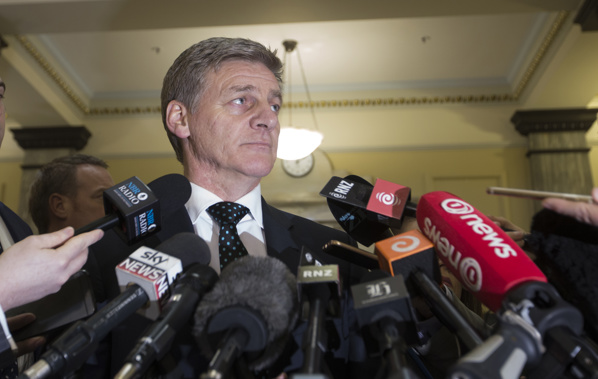
The Green Party says the Prime Minister tried to hide a scandal with his handling of Clutha-Southland MP Todd Barclay.
He announced yesterday that he will leave Parliament at the September election.
Green Party Co-Leader James Shaw said it's important Barclay has done the honourable thing and decided to stand down, though he thinks he should have done it a long time ago.
"I think that the Prime Minister should have asked him to stand down as a Member of Parliament when he discovered what Todd had done, rather than to cover it up," he said.
Bill English has defended what he did and didn't say about what he knew about the case, saying confidentiality of discussions around the employment dispute had to be respected.
Labour Leader Andrew Little said that's utter rubbish, and highlighted English's previous position that he hadn't had direct discussions with those involved.
"He had total direct contact with Glenys Dickson ... and indeed with Mr Barclay himself, he knew everything that was going on."
Questions have also been asked as to how Barclay's relationship with his electorate staff spiralled so badly out of control.
Deputy Prime Minister Paula Bennett said there were processes in place to support him as a young MP.
"You know without knowing all of the details of it, I think we have quite thorough initiation and then quite good relationships where we help the more junior members and I know that he got that sort of support as well."
Cabinet Minister Judith Collins, who was Minister of Police at the time of Barclay's investigation said she wasn't told about it.
Collins, who supported Barclay when he sought and won renomination for his seat, said she was not told of the inquiry under the 'no surprises' policy.
"Police would never brief me on matters like that. In fact it would be a breach of the Policing Act section eight."
Police are also on the receiving end of political criticism over their decision not to prosecute Barclay.
Police closed their inquiry last year saying they had insufficient evidence to proceed - Barclay had declined to cooperate with the investigation on legal advice.
But Andrew Little said, from the information now available, he doesn't agree with their decision.
"I think there is enough there to infer Todd Barclay's act in making the recordings was one that was deliberate and therefore they had enough... to launch a prosecution."
New Zealand First Leader Winston Peters also took issue with how the police handled the case.
He said there's a marked difference in the way they approached Barclay compared to their investigation of cameraman Bradley Ambrose over the teapot tapes affair.
Mr Peters said in the latter case they were beating down the doors of the media to get to the truth, and when they didn't get still issued a warning.
"Look at their difference in drive, function and ambition of the police in that matter and explain their political decision making on this matter at the highest level in Wellington."
Take your Radio, Podcasts and Music with you









